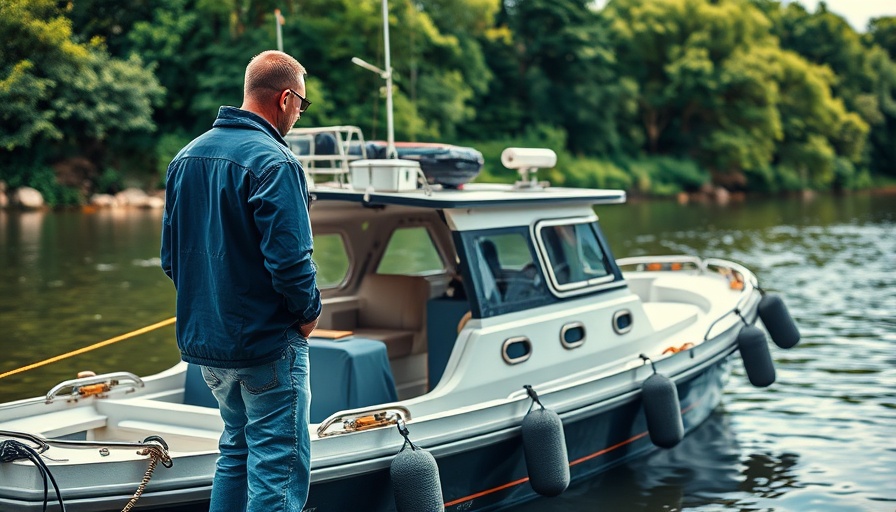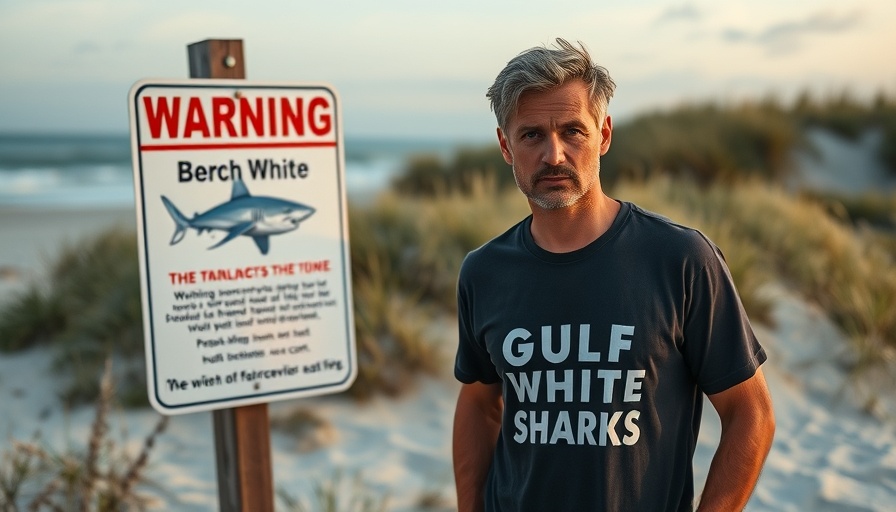
The Legacy of Shark Fishing in Alabama
For generations, fishing on the Alabama Gulf Coast has been a way of life, especially for families like that of Captain David Stiller. Since the 1890s, the Stiller family has contributed to the local fishing industry, with a rich tradition of catching sharks. Today, under the helm of Captain Stiller, Apex Shark Fishing Charters takes this heritage further, combining traditional practices with progressive conservation efforts.
The Importance of Sharks in Our Ecosystem
Sharks are not just apex predators; they are essential to maintaining healthy marine ecosystems. Research indicates that they play a critical role in balancing fish populations and maintaining the structure of marine food chains. Stiller and his team recognize this import and strive to contribute valuable insights through their work in conservation research.
Innovative Research and Lasting Impact
Through collaborations with the Gulf Coast Research Lab and NOAA's National Marine Fisheries Service, Captain Stiller and his crew are collecting critical data on various shark species, particularly bull sharks. They aim to understand not only reproductive habits but also factors like age and diet. This is vital data that wasn't previously available in the Gulf—a gap they are addressing head-on.
Revolutionizing Shark Research
The Sandbar Research Program offers a framework for regulated shark fishing that also emphasizes scientific inquiry. Stiller and his partner, Lew Childre, are committed to ensuring that their fishing operations contribute to this research. They understand that the information collected can foster responsible regulations and effective stock assessments, which are key to ensuring the sustainability of shark populations.
The Challenges of Balancing Fishing and Conservation
While Stiller and Childre’s efforts receive criticism from environmental groups, they maintain that commercial fishing does not inherently contravene conservation efforts. In fact, they prove that commercial fishermen can be key players in wildlife conservation. The duo emphasizes that regulation is not just necessary; it is beneficial to the fishing community and the environment alike.
Connecting Communities and Conservation
The success of shark fishing extends beyond the water. Local restaurants and the fishing economy benefit from the harvests, offering lucrative opportunities for families relying on these activities. This connection between conservation practices and community wellbeing highlights an often-overlooked aspect of fishing—a symbiotic relationship that fuels both economic and ecological health.
Through their ongoing research and shark fishing practices, Captain David Stiller and his crew exemplify a forward-thinking approach to marine conservation. Their contributions serve as a powerful reminder of how industries can evolve responsibly, aiming for both prosperity and protection of our natural resources. Whether you're a shark enthusiast or simply curious about marine life, there's much to explore and understand from the efforts being made on the Alabama Gulf Coast.
The balance of catching sharks for sport, market demands, and conservation is continuously evolving. As shark week approaches, it’s an opportune moment to reflect on the importance of these fascinating creatures in our oceans and what we can do to protect their future.
 Add Row
Add Row  Add
Add 




Write A Comment